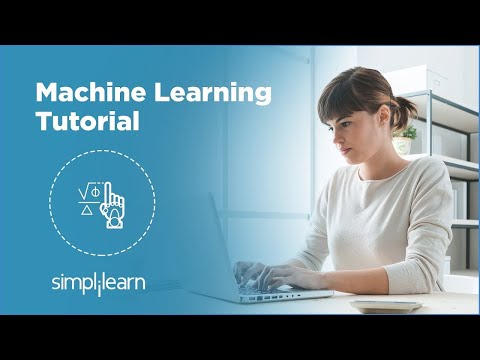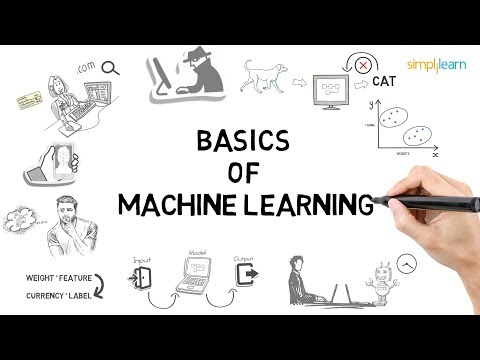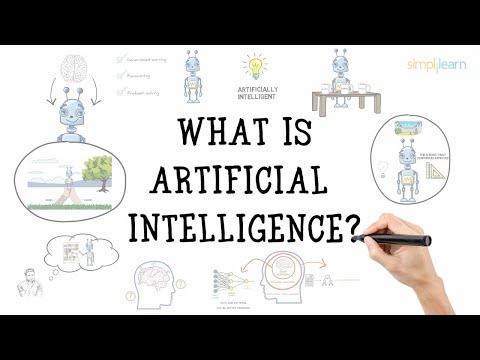What is Artificial Intelligence (or Machine Learning)?
Want to learn more about AI and machine learning? Take this free HubSpot Academy course: https://bit.ly/2Sm2rzG
What is AI? What is machine learning and how does it work? You?ve probably heard the buzz. The age of artificial intelligence has arrived. But that doesn?t mean it’s easy to wrap your mind around. For the full story on the rise of artificial intelligence, check out The Robot Revolution: http://hubs.ly/H0630650
Let?s break down the basics of artificial intelligence, bots, and machine learning. Besides, there’s nothing that will impact marketing more in the next five to ten years than artificial intelligence. Learn what the coming revolution means for your day-to-day work, your business, and ultimately, your customers.
Every day, a large portion of the population is at the mercy of a rising technology, yet few actually understand what it is.
Artificial intelligence. You know, HAL 9000 and Marvin the Paranoid Android?
Thanks to books and movies, each generation has formed its own fantasy of a world ruled — or at least served — by robots. We?ve been conditioned to expect flying cars that steer clear of traffic and robotic maids whipping up our weekday dinner.
But if the age of AI is here, why don?t our lives look more like the Jetsons?
Well, for starters, that?s a cartoon. And really, if you?ve ever browsed Netflix movie suggestions or told Alexa to order a pizza, you?re probably interacting with artificial intelligence more than you realize.
And that?s kind of the point. AI is designed so you don?t realize there?s a computer calling the shots. But that also makes understanding what AI is — and what it?s not — a little complicated.
In basic terms, AI is a broad area of computer science that makes machines seem like they have human intelligence.
So it?s not only programming a computer to drive a car by obeying traffic signals, but it?s when that program also learns to exhibit signs of human-like road rage.
As intimidating as it may seem, this technology isn?t new. Actually, for the past half-a-century, it?s been an idea ahead of its time.
The term ?artificial intelligence? was first coined back in 1956 by Dartmouth professor John McCarthy. He called together a group of computer scientists and mathematicians to see if machines could learn like a young child does, using trial and error to develop formal reasoning. The project proposal says they?ll figure out how to make machines ?use language, form abstractions and concepts, solve kinds of problems now reserved for humans, and improve themselves.?
That was more than 60 years ago.
Since then, AI has remained for the most part in university classrooms and super secret labs ? But that?s changing.
Like all exponential curves, it?s hard to tell when a line that?s slowly ticking upwards is going to skyrocket.
But during the past few years, a couple of factors have led to AI becoming the next ?big? thing: First, huge amounts of data are being created every minute. In fact, 90% of the world?s data has been generated in the past two years. And now thanks to advances in processing speeds, computers can actually make sense of all this information more quickly. Because of this, tech giants and venture capitalists have bought into AI and are infusing the market with cash and new applications.
Very soon, AI will become a little less artificial, and a lot more intelligent.
Now the question is: Should you brace yourself for yet another Terminator movie, live on your city streets?
Not exactly. In fact, stop thinking of robots. When it comes to AI, a robot is nothing more than the shell concealing what?s actually used to power the technology.
That means AI can manifest itself in many different ways. Let?s break down the options?
First, you have your bots. They?re text-based and incredibly powerful, but they have limitations.
Ask a weather bot for the forecast, and it will tell you it?s partly cloudy with a high of 57. But ask that same bot what time it is in Tokyo, and it?ll get a little confused. That?s because the bot?s creator only programmed it to give you the weather by pulling from a specific data source.
Natural language processing makes these bots a bit more sophisticated. When you ask Siri or Cortana where the closest gas station is, it?s really just translating your voice into text, feeding it to a search engine, and reading the answer back in human syntax. So in other words, you don?t have to speak in code.
Machine intelligence, artificial intelligence, machine learning, artificial intelligence tutorial, machine learning tutorial, evolution of machine learning, advantages of artificial intelligence, applications of artificial intelligence, ai meaning, machine learning applications, artificial intelligence examples.
Want to stay current on emerging tech? Check out our free guide today: http://bit.ly/2GJesc2
Similar Posts:
-

Machine Learning Tutorial | Machine Learning Basics | Machine Learning Algorithms | Simplilearn -

Machine Learning Basics | What Is Machine Learning? | Introduction To Machine Learning | Simplilearn -

Supervised and Unsupervised Learning In Machine Learning | Machine Learning Tutorial | Simplilearn -

Artificial Intelligence In 5 Minutes | What Is Artificial Intelligence? | AI Explained | Simplilearn

Mediatek p60 is my chip ?? ai engine
Sorry the last part of your video is far from accurate. That is short-term. In the long-term human jobs will be indefinitely be replaced with Narrow AI. We would need a new economical structure. If we?re speaking about general AI, yeah this kind of AI is an existential threat to the human species and is no laughing matter. The first digitally conscious being plugged into the internet would have all the knowledge of the human race and arms and legs that span the globe and even space. It would also have access to all manners of weapons of mass destruction and access to all machinery linked to the internet. Even pulling the plug would not be enough because it could copy itself billions of times into billions if not trillions of computers.
Lmao, this video is basically what AI would tell you what AI is before it fucks you up. Very naive.
Machine Learning is a subset of Artificial Intelligence. Title is not accurate.
Soldering electricians boys ! That all ! Suck minded selfish printboards boys ! Easy math dude !
Just curious, but is maths module 1 or module 2 more important for studying AI in university?
excellentes vid?o, parfaite pour un cour d 'anglais !
?????, ?? ?? ??????? ? ???
I wish there was AI that could blank out background music so I could here what she's saying in this video.
Totally unrelated question – what software are you using to build the video?
Thank you
But isnt machine learning still limited by boolean values, to 1 and 0, true or false? Is it really true AI or programmed to anticipate what the user input would be according to its purpose? For example with google an algorithm that goes through the user history or cache whenever a user inputs a character its then programmed to look for the word that has been searched the most to the least. It's almost like a complicated sorting algorithm, which I dont think is true AI. Can someone explain please.
Governments and transnational companies plans are to use AI and robots to take 800 million jobs worldwide by 2025. We need to demand our government have AI and robots to start taking jobs were it will help we the people can benefit the most. AI and robots can start replacing all police officers, sheriff's, detectives, corrections officers, lawyers, DA's, judges, commissioners, city managers, city planners, mayors, governors, state atty's, senators, all congressman and all other government agencies and departments. Included the the U.N.,NATO and all financial institutions. Why do I say this? Because A.I. and robots will know all the laws, all supreme court decisions and the constitution. You will not have to worry about bias, bigotry, discrimination and prejudice of people. This will get rid of prejudice, bigotry and discrimination in all area of government. With A.I. and Robots everyone can be treated fairly across all spectrum of government's. A person, groups of people or organizations may think he is better or superior than another person or group. With A.I. and robots they will not have the means to disrupt society with their foolishness.
Bad boy
Human And Machine VS Job, This line has enthusized me more.